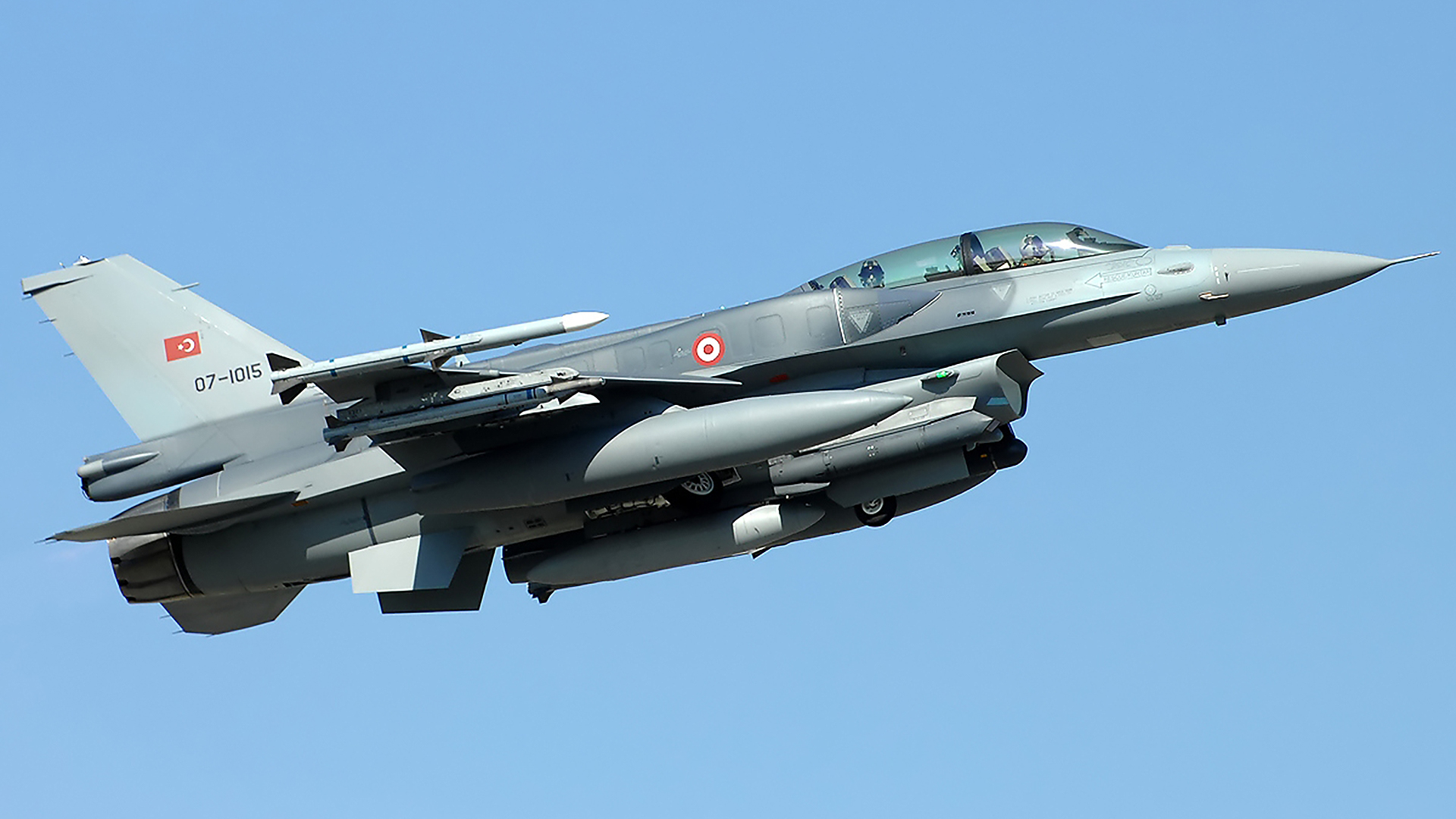U.S. President Joe Biden wants lawmakers to approve the sale of F-16s to Turkey “without delay,” potentially opening the way for Ankara’s long-stalled acquisition of the fighters. The move comes after Turkey finally gave its approval for Sweden to join it in the NATO alliance, something that had long been viewed as a requirement for a new F-16 purchase to go through.
An unnamed U.S. official confirmed that Biden wrote a letter to key Republican and Democratic members of the Senate Foreign Relations and House of Representatives Foreign Affairs committees yesterday. In this, the president made clear that he plans to launch the formal notification process for the Turkish F-16 buy.

Also on Wednesday, the White House sent a letter to members of Congress urging them to approve the sale, Reuters reports. The package is said to be worth $20 billion and includes an undisclosed number of new-build F-16s as well as upgrade kits for existing aircraft.
The acquisition process was kickstarted Tuesday when the Turkish parliament ratified Sweden’s NATO membership bid. The Scandinavian country applied to join the alliance in May 2022, in response to Russia’s full-scale invasion of Ukraine, but approval was delayed as both Turkey and Hungary dragged their heels on the ratification process.
As The War Zone reported in the past, U.S. approval of the Turkish F-16 deal seems to have rested upon Ankara dropping its opposition to Sweden joining NATO. This resistance had been based on what Turkey alleged was Sweden’s sympathetic stance on Kurdish militants, including members of the Kurdistan Workers Party (PKK), considered a terrorist organization by Turkey, the European Union, and the United States.

With Turkey’s President Tayyip Erdogan expected to sign the legislation into law imminently, Biden’s response has been swift.
“President Biden, Secretary Blinken have been very clear of our support for modernizing Turkey’s F-16 fleet, which we view as a key investment in NATO interoperability,” State Department Deputy Spokesperson Vedant Patel told a news briefing.
Patel continued: “I’m just not going to confirm or get ahead of proposed defense sales or transfers until they are formally notified to Congress.”

Once Erdogan signs, and that document is received in Washington, the U.S. State Department will “immediately” send Congress notification of the Turkish F-16s sale, the U.S. ambassador to Turkey, Jeff Flake, has said.
The U.S. State Department has so far not provided more details of how many F-16s and upgrade kits will be involved, or a timeline for deliveries.
A Turkish request for a $20-billion F-16 deal dates back to October 2021. That package included 40 new-build F-16s and almost 80 modernization kits for existing Turkish Vipers.
There could also still be hurdles to overcome before the Senate Foreign Relations and House of Representatives Foreign Affairs committees give their approval on the sale.
“For much of the time President Erdogan has been in office, Turkey has been an unfaithful NATO ally — so this is welcome news,” Senator Chris Van Hollen, a Democrat who sits on the Senate Foreign Relations Committee told Reuters.
“That said, I still have questions about Erdogan’s ongoing attacks against our Syrian Kurdish allies, his aggressive actions in the Eastern Mediterranean, and the role he played in supporting Azerbaijan’s military assaults against Nagorno-Karabakh,” Van Hollen added.
Meanwhile, Ambassador Flake has continued to urge lawmakers to approve the deal.
“There are members of Congress who felt strongly that before proceeding with the F-16 sale Sweden needed to be a member of NATO,” Flake told Reuters. “But they all see the value of Turkey’s participation in NATO, and they all see the value of interoperability that comes with this F-16 modernization.”

For Lockheed Martin, a likely new Turkish order for F-16s will add to an already impressive order book.
As we have recently discussed, the Block 70/72 version of the F-16 now in production at Greenville, South Carolina, has racked up orders to date from Bahrain (16 aircraft), Bulgaria (eight, plus options for eight more), Jordan (12), Slovakia (14), and Taiwan (66). With five of these delivered so far, Lockheed has a backlog of 135 jets, indicating that there are 24 to be built for another customer. That customer may be Morocco, which announced a plan to buy 25 F-16s back in 2019, as we reported at the time.
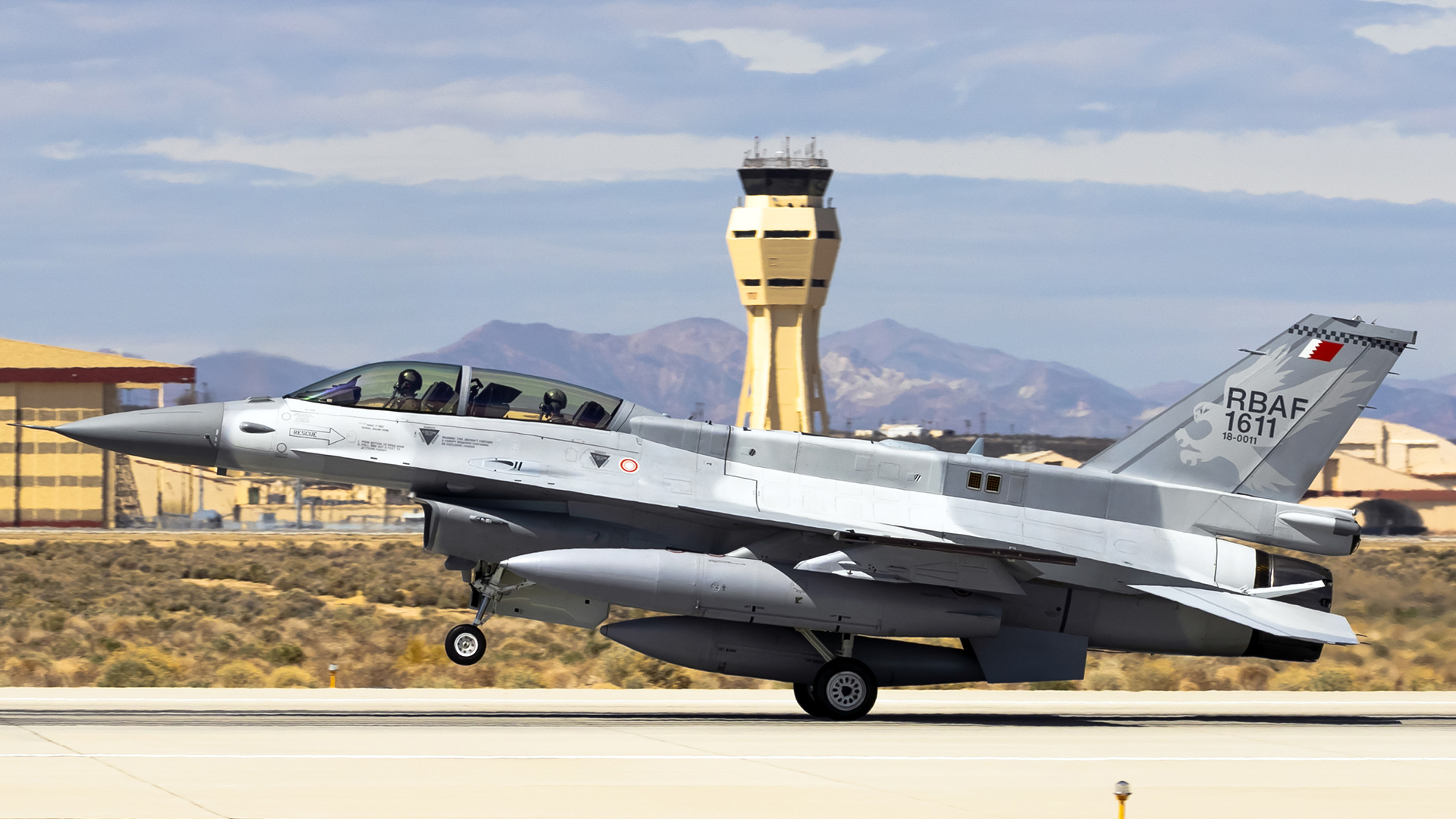
As we have discussed in the past, Turkey is facing an increasingly urgent requirement for new fighters.
At one time, Turkey was expected to introduce the F-35A stealth fighter, with its industry deeply involved in the Joint Strike Fighter production effort.

That plan was infamously derailed when Ankara decided to buy Russian-made S-400 air defense systems, which quickly led to it being booted out from the Joint Strike Fighter program in 2019.
To fill the gap, Turkey began looking at buying more F-16s, an obvious solution based on the fact that the Turkish Air Force is already dominated by the type.
As the world’s third-largest F-16 operator, Turkey received a total of 270 aircraft delivered in successively more capable Block 30, Block 50, and Block 50+ configurations. Local industry has also been deeply involved in the F-16 program, including local assembly of aircraft and production of center/aft fuselage sections and wings. There are meanwhile also local upgrade efforts, including the introduction of domestic weapons.

Despite an apparent Russian offer of Su-57 Felon fighters, Turkey continued to push for F-16s but was long rebuffed by the U.S. government. Even before the issue of Swedish membership of NATO, Ankara was being criticized by U.S. lawmakers due to its worsening relations with Greece, its connections with Russia and Azerbaijan (which included the deployment of F-16s to the latter country), its conduct in the Syrian civil war, and human rights concerns.
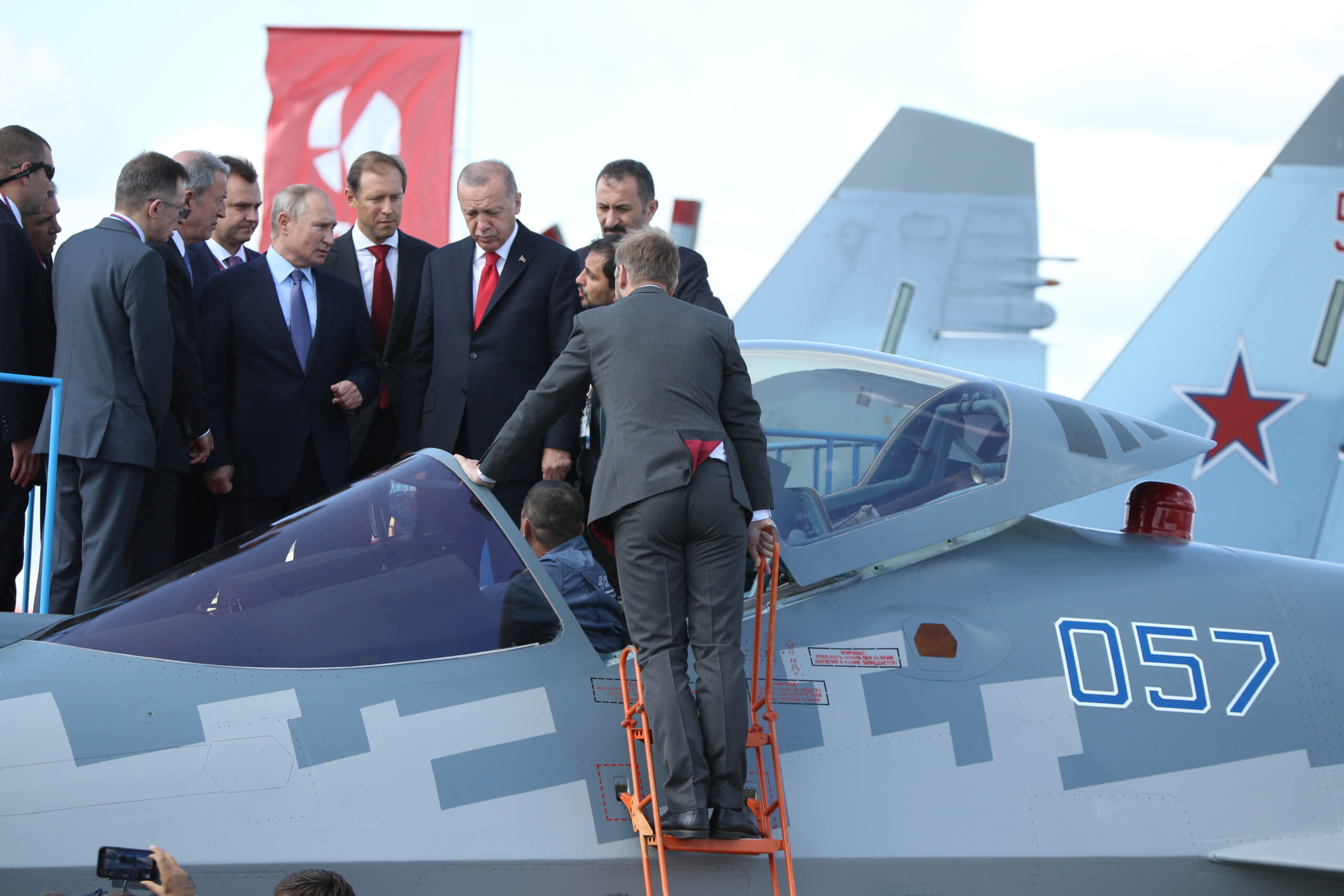
As an interim effort, Turkey has redoubled its efforts to upgrade and sustain its existing fleet of F-16s. As we have discussed in the past, a structural improvement program was launched to keep some of the older aircraft in the inventory active for longer. Alongside this, Turkey reportedly also began stockpiling spare parts for its Vipers back in 2019, fearing the effects of U.S. sanctions after the S-400 deal.
Earlier this year, there were reports that Turkey was looking to buy around 40 Eurofighter Typhoons as an alternative to F-16s. However, it appeared likely that Germany, in particular, would block a Typhoon sale to Turkey and it remains possible that interest in the aircraft was being used as a stalking horse to try and get an F-16 deal back on the table.
Looking further ahead, Turkey is hopeful of introducing domestically produced crewed and uncrewed combat aircraft as part of a revamped air force.
Turkish industry already has plenty of experience in building armed drones and its current programs include a low-observable flying wing unmanned combat air vehicle (UCAV), the ANKA-3, as well as a fighter-like drone, the Bayraktar Kizilelma. Both these are already undergoing flight tests although they are ambitious projects that may yet still falter.

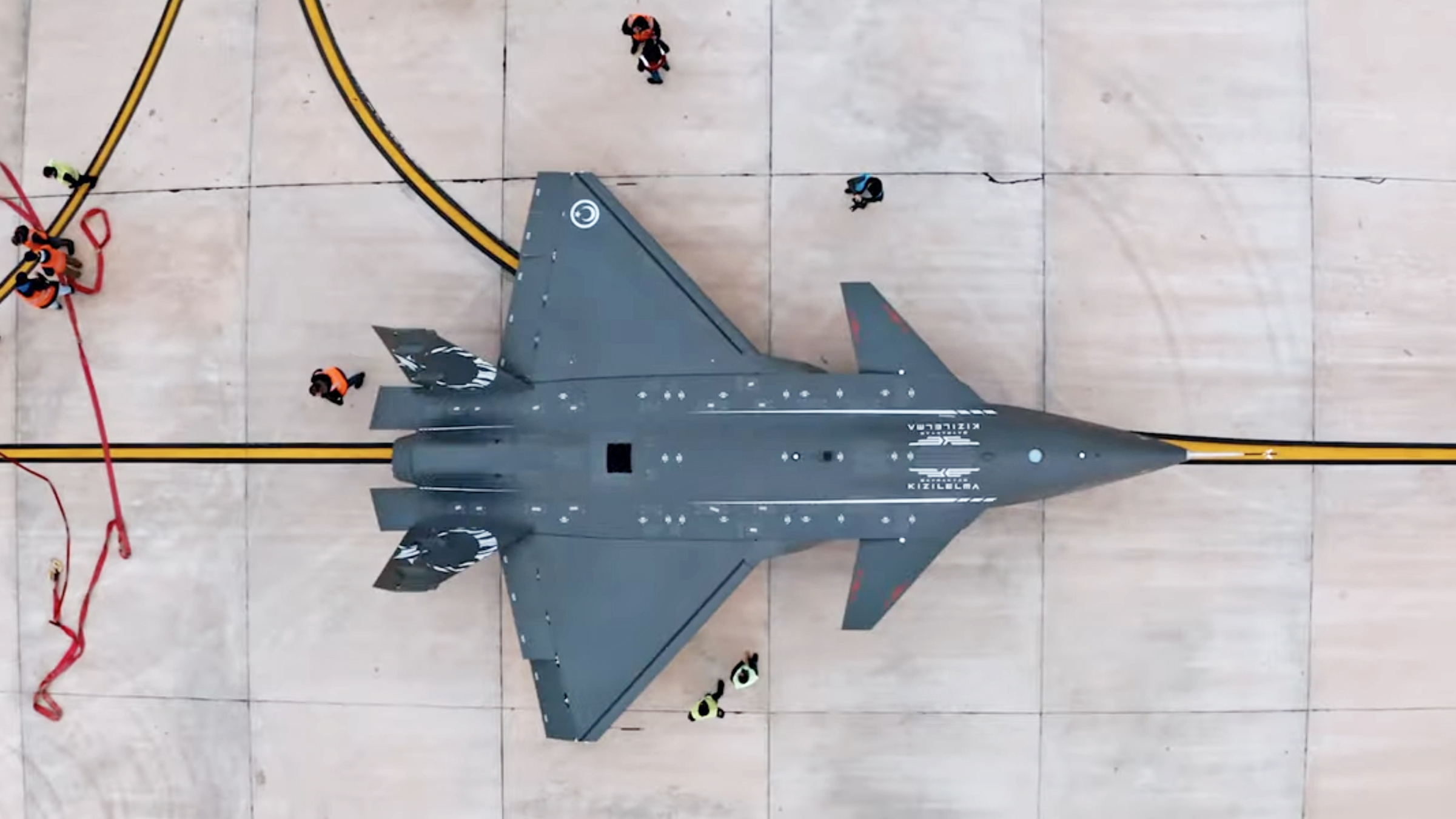
The same can be said of the TF-X Kaan next-generation crewed fighter, another low-observable design, which was expected to make its first flight before the end of 2023. The fighter started its engines for the first time in March 2023 and has since conducted a first taxi test.
However, there remain questions about the feasibility of this project, especially when it comes to sourcing engines and, even if it all goes to plan, it won’t begin to enter service until 2030, at the earliest.
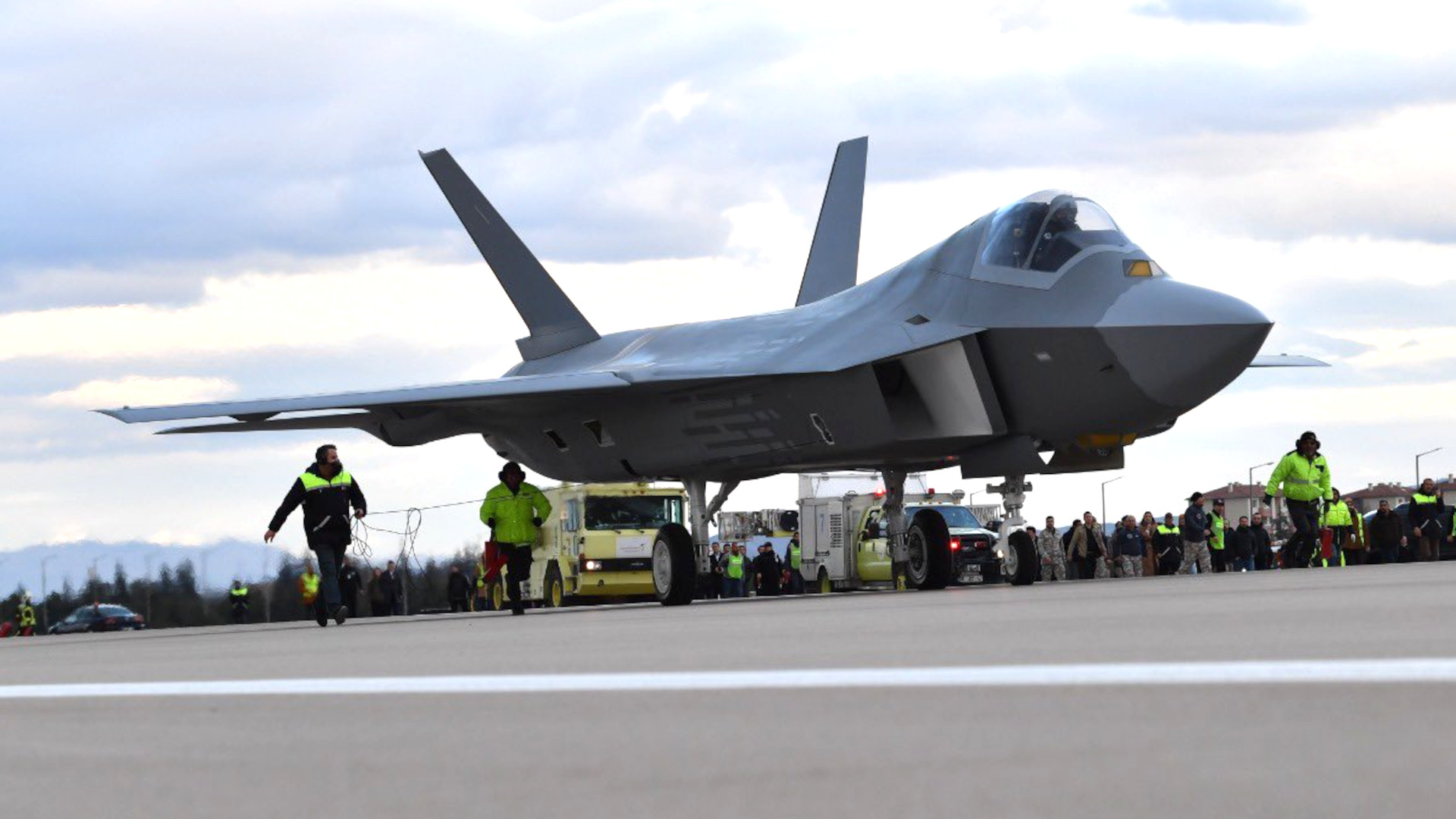
In addition, doubts about the long-term prospects of the TF-X may also be reflected in recent reports that Turkey is now working on a sixth-generation fighter, one that is planned to harness the advantages offered by artificial intelligence (AI).
With plans to launch the development of a crewed fighter that’s significantly more advanced than even the TF-X, there are legitimate questions to be raised about the ability of Turkish industry — and the defense budget — to support two such programs, especially without foreign investment. Pursuing a 6th generation fighter also seems like a tremendous reach considering the country’s 5th generation fighter, or at least close to it, is just getting off the ground.
Regardless of what happens with its own fighter and drone programs, Turkey is clearly in need of fighters to modernize its air force, even if to hedge against domestic fighter developments in the nearer term. With that in mind, Biden’s push to get a new F-16 sale for Turkey cleared should certainly address that, although, with an extensive production backlog, it may still be some time before the Turkish Air Force finally gets its hand on new F-16s.
Contact the author: thomas@thedrive.com
